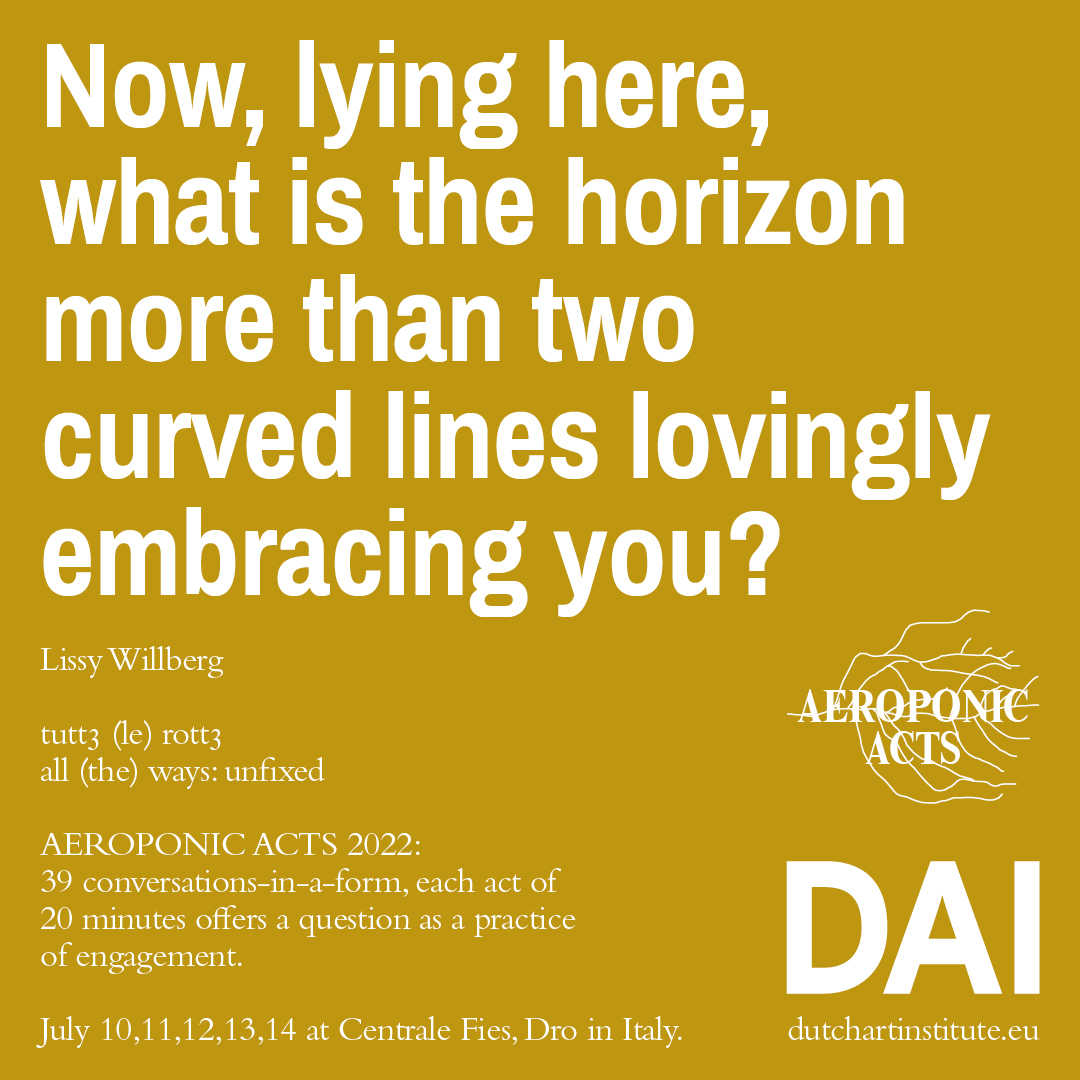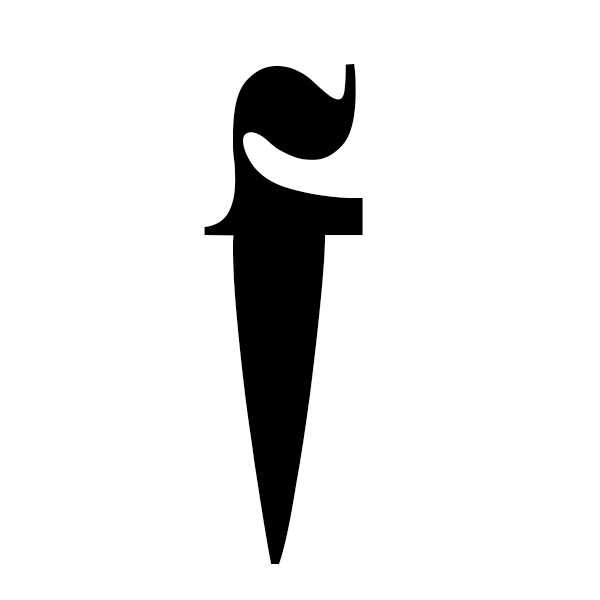Lissy Willberg: Hyphenated score (2)
‘Aeroponic’ – root systems nourished by air – Acts is the name given to the nomadic Dutch Art Institute’s final Kitchen presentations. Each participant addresses one question, as a practice of engagement.
Here you will find the documentation of Lissy Willberg's presentation as filmed by Baha Görkem Yalım. The written report is by Hubert Gromny and it includes a summary of the comments by esteemed guest respondents.
Hyphenated score (2)
Lissy's question: Now, lying here, what is the horizon more than two curved lines lovingly embracing you?
Lissy's introduction: "… The only lasting truth is change.” Octavia E. Butler
I will always have referred to dance as ongoing movement—all lively form and specifically the presumed “inanimate” as forever-in-process.
Consider the following a spatial commentary, of real encounters within imaginary settings. (Everything is already activated.)
Hubert's report: Audience enters the bright space and is invited to engage with the work and space in various ways. In the room three sculptural forms are allocated and accompanied by electronic music. The objects are relief-like abstract structures resembling representations of land topography. Lissy has her hair wet and is wearing knee pads. The audience walks around looking at the sculptures. Attention of the audience is redirected towards the performer when the music changes the rhythm and Lissy begins a slow figurative dance. Music stops while Lissy starts an essayistic speech and continues moving. The text engages with theoretical considerations and reflections on dimension, orientation and space. Philosophers such as Descartes, Immanuel Kant or Sarah Ahmed are invoked while Lissy is planking, moving within the space, climbing on the frame of the window or performing a roll forward. The figures and motions allude to theoretical notions evoked during the speech. At the end of the presentation Lissy invites the audience to look through the windows and contemplate on the view of the mountain.
Phanuel Antwi commented on the feeling of strangeness of staging encounters between specific theorists, writers and localizing them in the space offered during the performance. Referring to the notion of grammar from the short description of the abstract Phanuel pointed out that misuse of past and present tense created an interesting way to present past events and search for present answers. The way/ how the performance activated architecture and evoked writers and texts from very different realms of thought created a space of strange encounters and re-signification of the place. Phanuel added that the most important contribution of the performance was organizing the space from the position of the body, which allows further considerations on the organization of space as a reflection of power.
Chiara Figone discussed the notion of editing by commenting on the way how theories were selected, certain lines of the text repeated and reformulated during performing the movement and choreography within the space. Another point of entry of Chiara's reflection was the notion of the agency of the objects in the space—including sculptures, architectural elements of the room and the mountain outside. Chiara noted the tension between tactile engagement with the space and theorizing of touch at the same time in order to point out that further reflection on edition and orchestration of the movement could be an interesting path for the work to move forward.
Ana Teixeira Pinto offered a reflection on Immanuel Kant theorization of empiricism and invention of hyperdimensional space by locating the observer in the center of the theory of space. She referred to Kant’s example of the hand being recognized as left or right depending of the point of looking at it and juxtaposed it with scene from Octavia Butler’s ‘Kindred’, in which the main character Dana’s hand is stuck in between time-space dimensions, to bring another understanding of space. Ana evoked Descartes distinction between res-cogita and res-extensa, which allowed to differentiation between purely mental and material objects as a constitutive division for the Western conception of space and spoke about Gottfried Wilhelm Leibniz, which offered another way of theorizing space within Western philosophy, which is closer to Octavia Butler’s idea of space-time.
Lissy Willberg's "Hyphenated score (2)" was presented before live audience at the Centrale Fies, Dro, Italy on July 12th.
Find the overview of all 24 AEROPONIC ACTS 2022 here: tuttə (le) rottə - all (the) ways: unfixed


